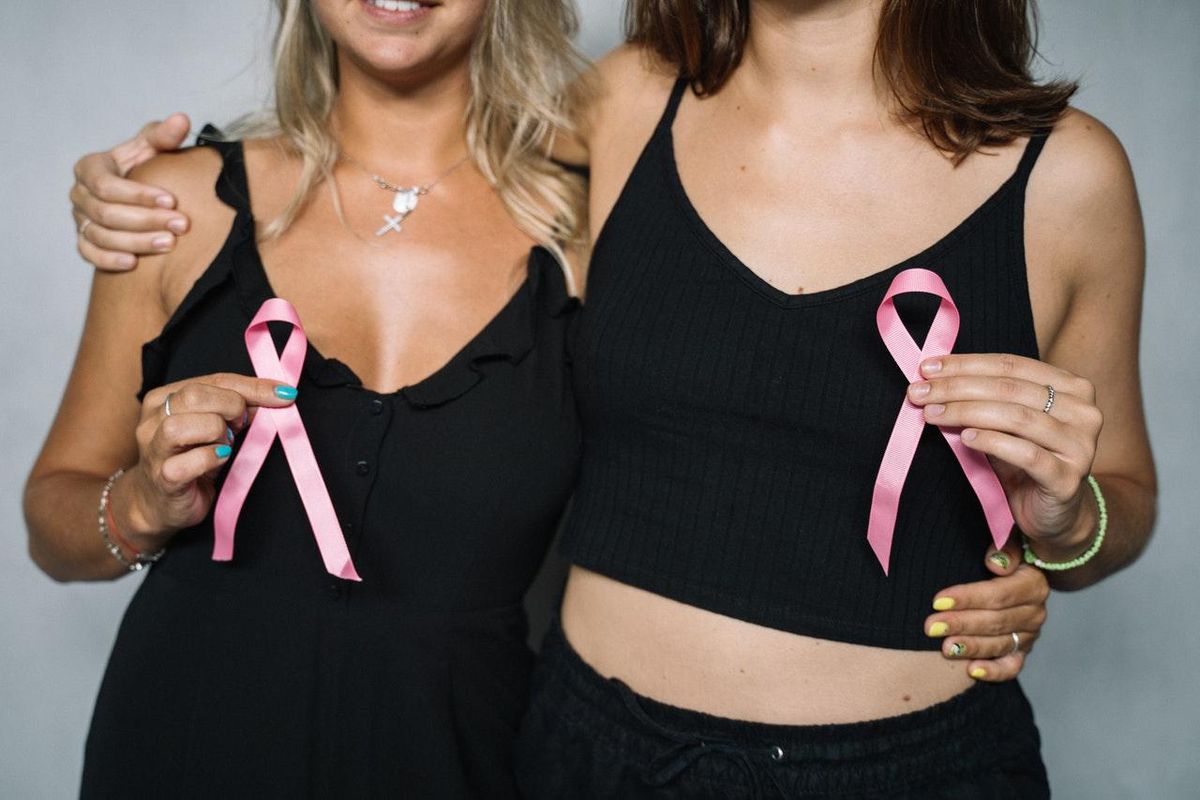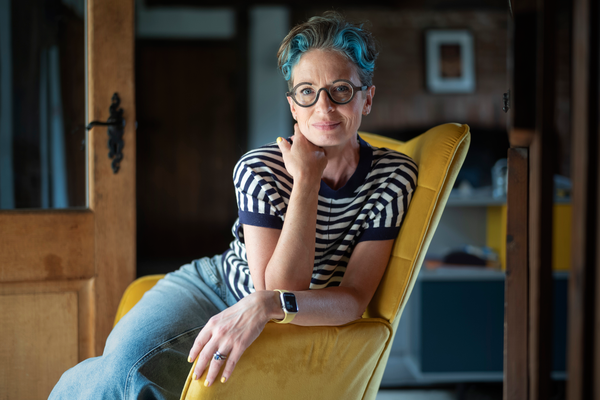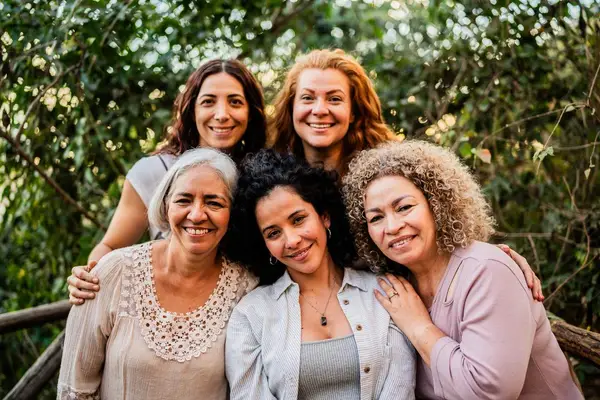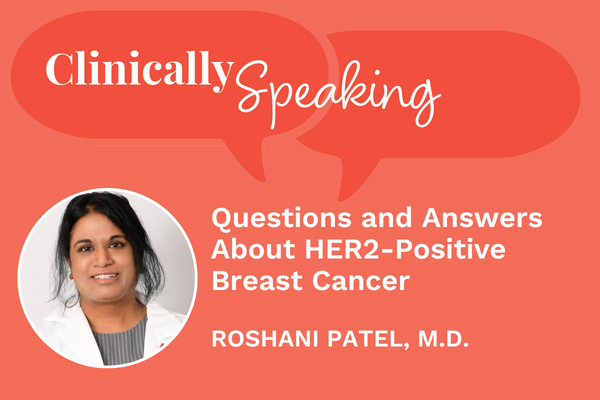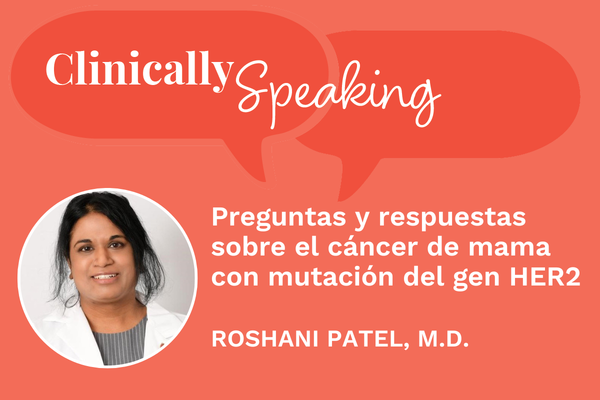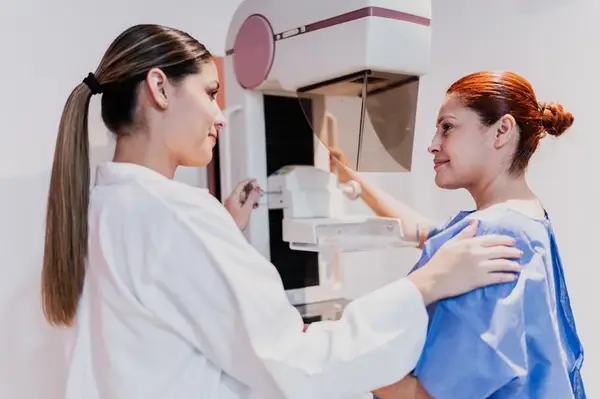Q:
My mother had breast cancer when she was 54, and two of my aunts (mom's sisters) were diagnosed with breast cancer. I am 32 years old. Should I be screened for the breast cancer gene?
A:
I can understand your concern given your strong family history of the disease. To answer your question, it depends on several things.
The vast majority of breast cancer is not caused by hereditary factors. In fact, only 5 percent to 10 percent of cases are caused by the so-called "breast cancer gene." For women with a family history, the percentage is higher. The results of a genetic test—whether positive or negative—could have a big impact on your life, so you need to be informed and think things through before making a decision. As part of the decision process, your doctor will want you to speak with a genetic counselor, an expert who can assess your personal risk of developing cancer and help walk you through the pros and cons of getting tested, as well as the possible outcomes of the test and next steps.
The breast cancer gene (BRCA) test involves a simple blood test to examine your DNA and find out whether you have inherited specific changes (alterations or mutations) in the BRCA1 or BRCA2 genes—two genes related to breast and ovarian cancers. For women who have a mutation in either of these genes, the risk of breast or ovarian cancer is significantly higher than for women without the mutation. For example, women with an altered gene have a 36 percent to 85 percent chance of getting breast cancer (compared to 13 percent of women in the general population) and a 16 percent to 60 percent chance of ovarian cancer (compared to 1.7 percent in the general population). There is also some evidence that the risk of other cancers, including colon and pancreatic cancers, may be slightly increased in these women.
But remember, the test result is only one aspect of your risk. For example, if you test positive it doesn't mean that you will definitely get cancer and it doesn't tell you when. Not everyone who inherits changes to a BRCA gene will get cancer.
On the flip side, many health professionals are concerned that women who find out they don't carry the gene have a false sense of security and may not be as vigilant with lifestyle changes, breast self exams, mammograms and other recommended screenings. The fact remains that one in eight women (13 percent) will have breast cancer in their lifetime. Even if you don't have the gene, you should still take the same steps to help reduce your risk of breast and other cancers, such as getting regular physical activity, eating a healthy diet, not smoking and limiting alcohol consumption. You should also continue to take steps to help you detect cancer early, including performing periodic breast self-exams, getting yearly clinical breast exams and following your doctor's advice for screenings.
Of course, if you have the gene, there are additional strategies you and your doctor will want to discuss. These include: screening with mammogram plus MRI; taking tamoxifen; and prophylactic removal of your ovaries or breasts.
If you're at very high risk for breast cancer because of a strong family history of breast and ovarian cancer, an inherited breast cancer gene abnormality or previous breast cancer, talk to your health care professional about a prophylactic mastectomy. Prophylactic mastectomy is an aggressive preventive surgery that removes both breasts before any cancer is detected. It can reduce the risk of breast cancer by approximately 90 percent, but doesn't eliminate the risk entirely. Removing the ovaries (prophylactic oophorectomy) may also be a preventive choice for women with an inherited breast cancer gene abnormality, since the risk for ovarian cancer is also greater for these women.
It is also important to realize that if you are the first person tested in your family, the results won't be as helpful because you have never had cancer. It would be a good idea for your mom to consider genetic counseling and testing. If she doesn't have a mutation, you won't need to get tested. If she does, you'll know what mutation to be tested for. Many women also worry that a positive test result may make it difficult to get or keep health or life insurance down the road. Once the Affordable Care Act is fully in place, that should no longer be a concern, but it's always a good idea to talk with your insurance provider, as well as your health care provider, before making a decision. These are all important issues that a genetic counselor can help you consider before getting tested, so you can map out a plan that's right for you.
Certain women have a higher chance of inheriting a BRCA mutation. The likelihood that breast and/or ovarian cancer is associated with BRCA1 or BRCA2 is greater in families with:
- a history of multiple cases of breast cancer, especially at a young age or in both breasts
- cases of both breast and ovarian cancer
- one or more family members with two primary/types of cancers
- An Ashkenazi (Eastern European) Jewish background
Read more:
Breast Cancer Guide
Breast Cancer Screening
- 3 Facts Every Woman Needs to Know About Breast Cancer Screening ›
- Breast Cancer Screening & Testing ›
- Don’t Put Off Breast Cancer Screening — It Could Save Your Life - HealthyWomen ›
- The Importance of Understanding Your Family History of Breast Cancer - HealthyWomen ›
- Genetic Counseling: What You Need to Know - HealthyWomen ›
- Olivia Munn’s Breast Cancer Diagnosis Is a Wake-Up Call for All Women - HealthyWomen ›
- El diagnóstico de cáncer de mama de Olivia Munn es una señal de alerta para todas las mujeres - HealthyWomen ›
- Facts About Self Breast Exams - HealthyWomen ›
- Información acerca de los autoexámenes de mama - HealthyWomen ›
- Kate Walsh Wants You to Get Screened for Cancer - HealthyWomen ›

